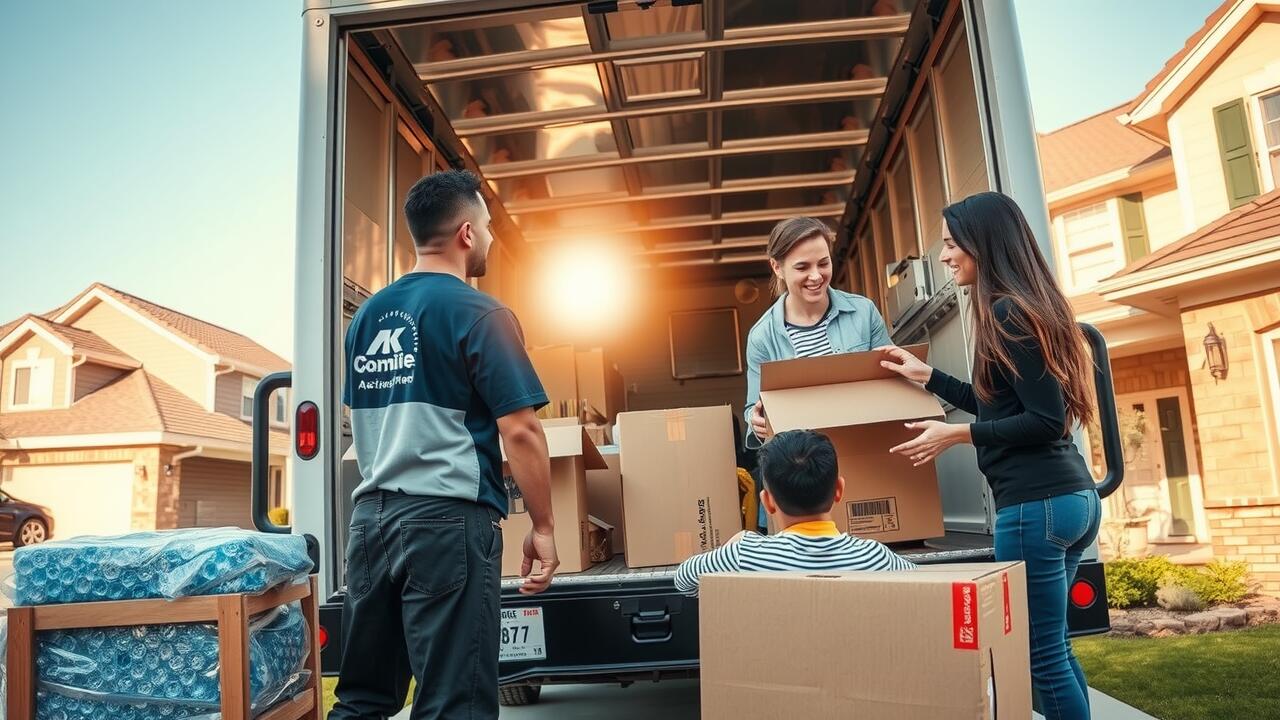
Table Of Contents
Insurance for Mobile Home Moves
When planning a move, especially a long-distance relocation like those requiring long distance moving West Chicago, Illinois, securing the right insurance is crucial. Standard homeowner's insurance often doesn't cover mobile homes during transit. Many moving companies offer specific insurance options for mobile home moves, ensuring that any damages incurred during transportation can be addressed financially. It's essential to thoroughly review all policies and determine what level of coverage you will need before committing.
Determining the proper insurance coverage also involves understanding the potential risks associated with moving a mobile home. Factors such as road conditions, weather, and the size of the mobile home can impact the likelihood of damages occurring. Obtaining coverage that accounts for these variables can provide peace of mind throughout the moving process. Additionally, comparing different insurance options can help you find the best coverage at an affordable rate, protecting your investment as you navigate your move.
Importance of Coverage
Insurance is a critical aspect when it comes to relocating a mobile home. If you're planning a move, especially for a distance like Long Distance Moving West Chicago, Illinois, coverage can provide peace of mind. Standard auto insurance policies often do not cover mobile homes, so it's important to seek specialized insurance that does. This coverage can protect against potential damage during transport and ensure that you are financially safeguarded.
In addition to safeguarding your investment, insurance can also be a requirement from many professional moving companies. They may ask for proof of coverage before they agree to handle the move. This requirement can lead to further complications if you are unprepared. Taking the time to understand the insurance options available can help streamline the moving process and alleviate some of the stress that comes with relocating a mobile home.
Additional Costs to Consider
When planning a move, especially for a single-wide mobile home over a distance of 100 miles, additional costs can quickly add up. Beyond the obvious fees associated with hiring a professional mover or renting moving equipment, expenses such as permits, utility transfers, and inspections should be factored in. Local regulations may require specific permits for transporting a mobile home, particularly in areas like Long Distance Moving West Chicago, Illinois, which can add to the overall budget.
Unexpected expenses can also arise during the moving process. Weather-related delays may require temporary accommodations or additional fuel for transport. If the chosen route includes areas with toll roads, these fees can further inflate the moving costs. Understanding these potential hidden fees allows for better financial planning and helps to mitigate surprises during the moving process.
Hidden Fees and Unexpected Expenses
When calculating the cost of moving a single-wide home, it's essential to be aware of potential hidden fees and unexpected expenses that might arise. Costs can grow quickly if you neglect to factor in various elements like permitting fees, road closures, or required escort vehicles during transit. Different states and localities may have their own regulations, which can add extra charges. Long Distance Moving West Chicago, Illinois, may involve additional complexities due to local policies or terrain.
Another area where expenses can accumulate is in the preparation and setup of the mobile home at the new location. This can include connection of utilities, landscaping adjustments, or even repairs that were not initially noticeable. If you are in a rural area or a place with limited access, logistics can change the overall price. It’s critical to discuss these possibilities with your moving company to avoid any surprises on moving day.
DIY vs. Professional Movers
When considering the option of moving a single-wide mobile home yourself, several factors come into play. This approach offers the opportunity to save on labor costs, which can be significant when hiring professionals. However, it also requires a solid understanding of the logistics involved, such as securing the necessary permits and ensuring that the mobile home is safely prepared for travel. The process can be labor-intensive and time-consuming, particularly over a distance of 100 miles. Resources are needed to ensure the move complies with local regulations, as well as specialized equipment to handle the mobile home's transport.
On the other hand, professional movers bring experience and expertise to the table, which can be invaluable during a complex move. Companies specializing in Long Distance Moving West Chicago, Illinois, offer services that eliminate much of the stress associated with relocating a mobile home. They are equipped with appropriate vehicles and tools, which reduces the risk of damage during transport. While the upfront costs may be higher compared to a DIY approach, the peace of mind that comes with knowing an experienced team is managing the move can often outweigh the expense.
Pros and Cons of Each Option
Choosing between DIY and professional movers for relocating a single-wide mobile home comes with distinct advantages and disadvantages. A DIY approach allows for greater control over the moving process. Homeowners may save on labor costs and tailor the schedule according to their preferences. However, they must also consider the challenges of navigating the logistics involved in moving a mobile home safely. The risk of damage to the home or property can significantly increase when doing it yourself, especially for a long-distance relocation.
On the other hand, hiring professional movers offers expertise and experience in handling mobile homes, especially for long-distance moving in West Chicago, Illinois. Professionals come equipped with the right tools and knowledge to ensure the home is transported safely and legally. The downside is the cost associated with hiring movers, which may include various fees and charges that can add up quickly. Weighing these pros and cons is essential for making an informed decision on how to proceed with the move.
FAQS
What is the average cost to move a single-wide mobile home 100 miles?
The average cost to move a single-wide mobile home 100 miles typically ranges from $1,000 to $5,000, depending on various factors such as the size of the home, the terrain, and local moving rates.
Are there additional costs involved in moving a mobile home?
Yes, in addition to the basic moving fee, you may encounter additional costs such as permits, insurance, utility disconnections and reconnections, and potential repairs or upgrades to the mobile home.
Do I need insurance when moving a mobile home?
Yes, obtaining insurance for mobile home moves is essential. It protects your home against potential damages that may occur during the transport process.
Should I hire professional movers or attempt a DIY move?
The choice between hiring professional movers and a DIY move depends on your budget, experience, and comfort level. Professional movers can ensure a safer and more efficient move, while a DIY option may save money but involves more risk and effort.
What are some hidden fees I should be aware of when moving my mobile home?
Hidden fees may include costs for permits, unexpected repairs, equipment rentals, or additional charges for moving during peak times. It's important to get a detailed estimate from your mover to understand all potential costs.


